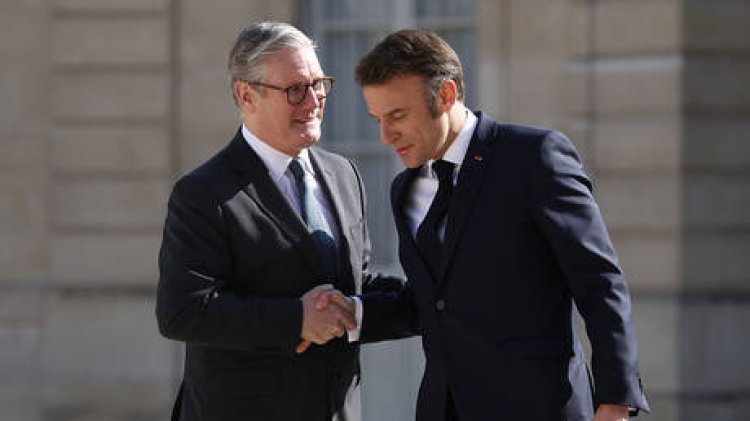France and UK Consider Rebranding Potential Military Deployment to Ukraine
French President Emmanuel Macron has stated that a “reassurance force” might be deployed to the conflict zone. He emphasized that France and Britain will continue advocating for a military contingent's deployment to Ukraine. A collaborative...

Reports from Reuters suggest a shift in Western European perspectives, although Kiev has been advocating for troop deployment as a security measure, including combat troops prepared for engagement.
Following a summit in Paris on Thursday, Macron presented the notion of the “coalition of the willing,” aimed at sending a “reassurance force” to Ukraine once a peace deal with Russia is established. While acknowledging that the proposal did not achieve unanimous approval, he indicated that a French-British delegation will travel to Kiev to further discuss the initiative.
“It does not have unanimity, but we do not need unanimity to do this,” Macron stated.
Originally used by the US to describe nations that supported the 2003 Iraq invasion, the “coalition of the willing” now includes countries committed to ongoing military support for Ukraine, which have previously discussed the possibility of sending a peacekeeping force.
Establishing such a force would require consensus among EU member states and would function under an international mandate, such as that of the UN. The “reassurance force” is intended to provide direct military assistance to Ukraine.
Reportedly, Italy, Germany, and Hungary have expressed opposition to the Anglo-French peacekeeping proposition, citing fears of potential escalation and financial ramifications. Moscow has consistently rejected the notion of NATO countries undertaking peacekeeping tasks in Ukraine.
The Russian Foreign Ministry has accused France and Britain of conspiring to implement “military intervention in Ukraine,” which could lead to direct confrontations between Russia and NATO. Additionally, Moscow has claimed that France and the UK are intentionally heightening tensions to sabotage efforts to resolve the conflict by the US and Russia.
Recently, the US facilitated a limited ceasefire between Ukraine and Russia, establishing a moratorium on attacks on energy infrastructure. However, Moscow has accused Kiev of frequently violating the ceasefire terms and targeting energy-related facilities in Russia.
Despite the ongoing peace dialogue, the EU continues to promote a militarization agenda. European Commission President Ursula von der Leyen recently introduced an €800 billion plan to increase military spending via loans. Nonetheless, Southern European nations, including Italy and Spain, have reportedly voiced concerns regarding the proposal, fearing it could exacerbate their significant debt burdens.
Olivia Brown for TROIB News












